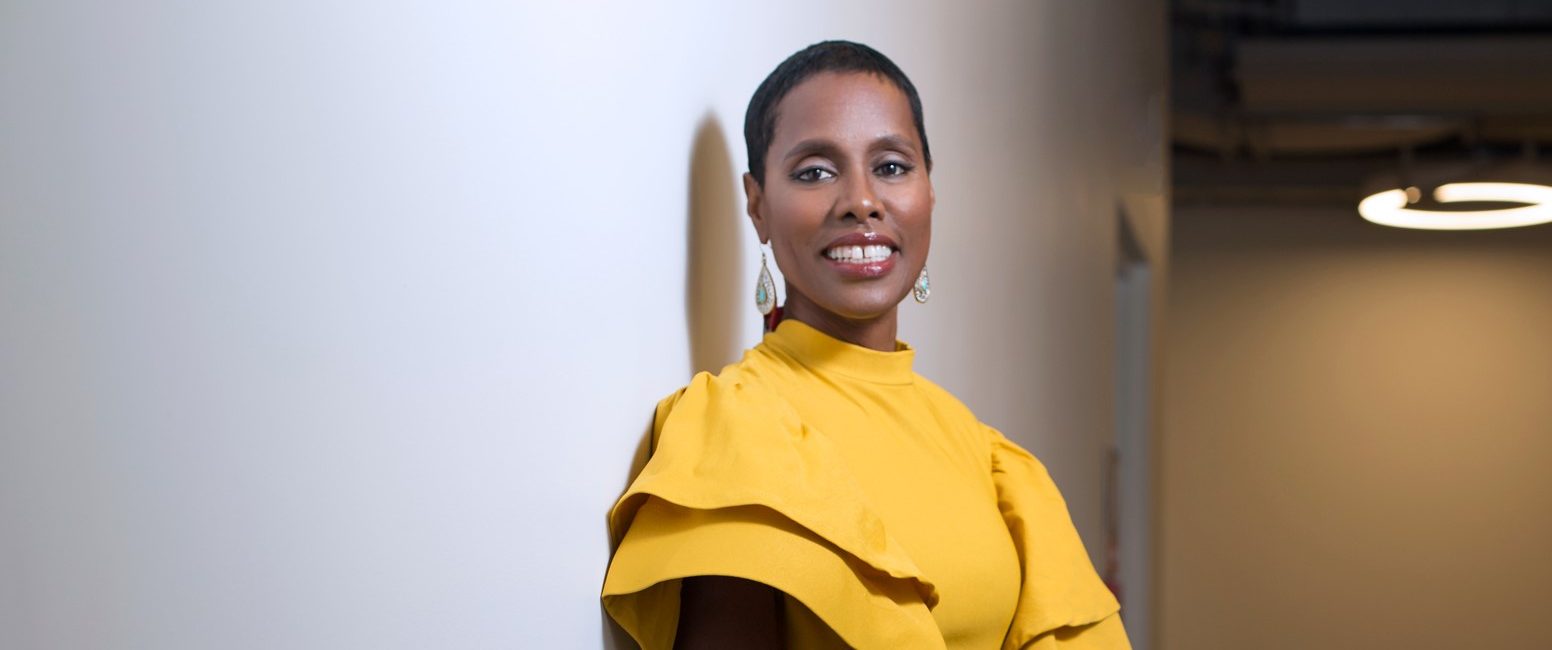By Evan J. Cutts
Kamil Ali-Jackson, Esq. is a co-founder of Aclaris Therapeutics, Inc., as well as the company’s Chief Legal Officer, Chief Compliance Officer, and Corporate Secretary. As a result of her decision to leave a “safe” position with a large pharmaceutical company, Kamil quickly evolved from an employee to an entrepreneur.
As a fearless leader working to empower disadvantaged people, Kamil attributes her professional success to luck and talent. When asked to reflect on the meaning of success, Kamil said that her success should be measured by those she has empowered. She strives on a daily basis, and always with passion and grace, to help others navigate through work challenges. Kamil believes that her ability to “get the job done” is one of the primary reasons she has thrived in her profession.
Kamil’s commitment to sharing the power, rather than hoarding the power, and her dedication to developing a talented and diverse workforce for the companies she has helped to create is an integral part of her legacy. Drawing from her thirty-four years of experience in the legal profession and pharmaceutical industry, Kamil shares her thoughts on legacy, leadership, and empowerment.
Evan J. Cutts: Tell us a little more about your roles at Aclaris Therapeutics. What are some of your responsibilities?
My responsibilities include the oversight and management of all legal, compliance, and corporate governance-related matters. I manage a team of attorneys and compliance professionals, to ensure that the company develops and commercializes its pharmaceutical products, technologies, and services, in accordance with applicable laws that govern the pharmaceutical industry. As a member of the Executive Management team, I am responsible for providing both strategic and legal counsel regarding the company’s business, products, and services. I am one of the “Gets It Done” members of our Executive Team.
In your thirty-four-year career, you have co-founded several specialty pharmaceutical companies. Can you elaborate on one or two key lessons you learned along the way?
Lesson #1 is to stretch. Always be willing to take on more. Never assume that your “learning” days are behind you. There is always something new that you can learn about the industry and the company’s business, people, products, and services. Lesson #2 is to jump. Take the job you didn’t want, handle the project that is not glamorous or important, take the “less safe” path to professional success.
Having an expansive career in the pharmaceutical and legal sector, what was your thought process for diving into higher education as a board member of Rosemont College in Pennsylvania?
I love sharing my knowledge, expertise, information, and resources with other people—especially young people who are just starting on the road to becoming the working professionals and people they want to be. That is why I agreed to join the Board of Rosemont College. Colleges are the incubators for the leaders, thinkers, and doers of the future, and I wanted to actively participate in helping to shape those leaders, thinkers, and doers.
How do you leverage your position to promote change in higher education?
As a board member, by sharing my views and perspectives, I help educate others who are directly responsible for developing the teaching tools offered to the people who will determine my future as well as their own future. I need to be “in the room,” so that I can be one of those who influence the ones who determine who “is in the room.”
As an executive and a Black woman navigating both the STEM and Legal sectors, what advice would you offer other Black women taking on those fields?
My advice to other Black women in any industry, including the science and legal professions, is “Embrace your black femaleness. Never deny it. Being black in America is a strength, not a weakness. Use that strength to keep you motivated, focused, and forward-looking. It is easy to learn “book subjects,” such as science and the law. It is harder to “learn” personality characteristics, such as resiliency, adaptability, moral character, and thankfulness. Being a black female in the science and legal professions in America—though it may not be commonplace— does not mean I am “special.” There are many who are more talented, smarter, stronger, more educated, and better-connected than I. I believe luck has as much to do with my personal success as my brains. If you remember that, you will keep your soul intact, as well as your mind.
What does “legacy” mean to you? What do you want your “legacy” to be?
A legacy is a gift you give to others. Overall, I want my legacy to be “She empowered others with passion and grace so that all of us could thrive.” I don’t want to be the “only.” If I feed myself, I’m the only one who survives. It’s a lonely existence. If I give other disadvantaged people the opportunity to earn a living, to feed themselves and their families, an entire community, which I can be a part of, survives and thrives.



